ITB Hospitality Day 2016 with discussion on innovation and on innovation labs
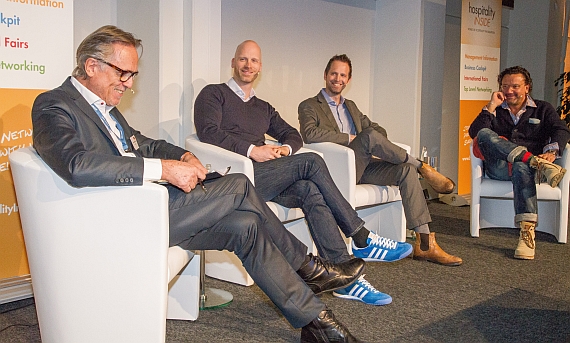 |
|
| Moderator Hans-Juergen Klesse discussing with Dr. Jens Pippig, René Massatti and Christoph Hoffmann (from left). |
Berlin (April 15, 2016). Innovation in the hotel industry has up to now often come from small and medium-sized companies; companies which have intensive contact with the guest and which pursue ideas based on guest suggestions and needs. Larger chains today work with "innovation labs" and trend researchers to turn their guests into fans. Will the hotel concepts of tomorrow arise in this way and how big is the impact of technology and digitalisation? A discussion round at the ITB hotel conference in March sought answers.
The title of the podium discussion at the "ITB Hospitality Day" attracted much curiosity: "Innovation Labs: Guests Become Fans. Where do the ideas for future-oriented hotel concepts come from and how are they developed? Who is already living innovation today?" In view of the sheer volume of reporting on developments in the hotel industry in the field of technology and digitalisation - from loyalty programmes to online check-in and state-of-the-art booking apps - one could easily get the impression that successful hoteliers only have to be up-to-date in these fields. Against this backdrop, Mario, the robot invited to the Hospitality Day from the Marriott Hotel in Ghent, was a star attraction for trade visitors from far and wide (see link).
In marketing, findings from innovation labs speak quite a different language though. Hans-Juergen Klesse, journalist and discussion host: "In presenting itself, the hotel industry today largely focuses on empathy and sense of well-being." This is the reason that discussion participants Christoph Hoffmann, Managing Director of The 25hours Hotel Company, René Massatti, Chief Strategist at the trend research company TrendOne, and Jens Pippig, Managing Director of ProSiebenSat1Media Accelerator, didn't describe the robot as a mega-trend for the hotel industry. "The robot won't determine the degree of innovation for a hotel," Pippig said. Massati added: "The idea that a robot could replace a person is wrong. It will assist a person."
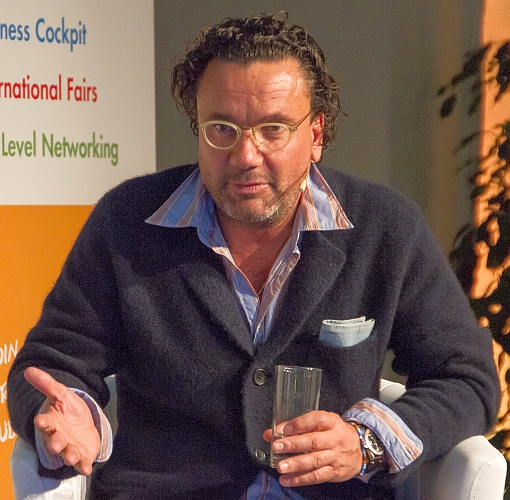 |
|
| Christoph Hoffmann, The 25hours Hotel Company: Success can also be achievd without high-tech. |
Better: analogue and low-tech
Hoffmann, the only hotelier on the panel, had to repeatedly fend off accusations that his industry suffered from a deficit of ideas and lacks innovation. "At the technological level, we are not the first mover, that's true, but we are at the emotional level," he countered. Perhaps very little innovation is necessary for the success of a hotel though. 25hours is looking for things beyond the mainstream. This could mean, for instance, instead of focusing on state-of-the-art technology, focussing on analogue things and on low-tech. "In our development, we focus on the good old Grand Hotels in which people meet, talk and have a good time and maintain cultural exchange, for instance through a literary circle."
In 25hours' labs, stories which older hotels sometimes bring from home are redefined for group hotels. "In looking for hotels, we have tended to take an opportunistic approach up to now. Large cities, urban locations were the only requirements. The script was written to fit with that. In some locations, for instance Hamburg Harbour, ideas hit us like waves," Hoffmann explained. Now, 'ideas planning' plays a more significant role in the international expansion. "We need a core creative team there that develops ideas for cities in which we are not yet active." The working title "innovation lab" was chosen for this department. A creative ping pong arises in the teams, he explains. "A hotel is an experience which can be different in many areas," Hoffmann says. Star designers haven't always provided the best experience, Hoffmann continues.
The basics have to be right
Pippig, who stressed the inertia he sees in the sector, said: "The hotel industry is an industry that sits on investment assets such as real estate, facilities etc. For this reason, innovation is not written as large as in other sectors." This sector must establish its profile around its assets, he continued. "It becomes problematic when they sit on an old property and say: I'll ride this horse until it collapses." The media manager saw clear deficits in the hotel industry as it made the switch to online bookings in the past. This proceeded much more quickly in other industries. Also, the hotel industry often fails with the most simple services. "I love it when the bed is clean and the shower works. And it would be good if my invoice address was right and the internet worked smoothly."
This would make a positive difference. "I also find it important that there's a free plug socket next to the bed and that all lights can be switched off from the bedside," Pippig continued. Hotels that have problems here, should see to these first. "For a 150 room hotel, the cost of reconfiguring to be able to switch all lights off from the bedside would be EUR 300,000 to EUR 500,000," Hoffmann responded.
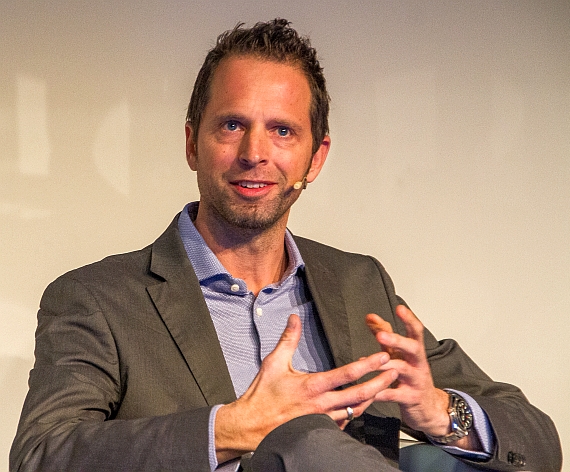 |
|
| Trend researcher René Massatti - forming visions with cardboard. |
In principle, 25hours spends an estimated ten percent more for furnishings that its rivals, Hoffmann continued. This also includes the developing surprising ideas, such as, for instance, the height-adjustable sea freight container in the 25hours Hafencity in Hamburg. Cooperation with external restaurateurs in F&B also costs money. "Though as a result, we also have greater operating success." The idea that in the hotel industry everyone only has the kitchen on their minds comes from a past in which hotels were very local products; the next stage in the evolution of the guesthouse for travellers. "The hotel industry was never a technology-driven industry. OTAs are one of its sub-divisions," Hoffman says confidently.
In accordance with received wisdom that each trend also sets off a counter-trend, 25hours is turning the tables on technology and has joined forces with the company Supersense based in Vienna. Supersense, which drew attention to itself some years ago with the purchase of the last Polaroid factory, only offers analogue services in its store. "You can even have your own vinyl records pressed. Together with Managing Director Florian Kap, generally referred to as Doc, we have agreed that he is to offer an intervention in our hotels which is exclusively analogue," Hoffmann says. For example: In the 25hours Vienna, guests can have themselves photographed in a picture cabin.
Virtual reality on the march
Trend researcher Massatti is not satisfied with analogue mini trends. With his team, he has been trend scouting for over ten years. More than 80 scouts focus here on the mega-trends and break these down for clients and collect further information. The basis for this are the 1,500 trend broadcasts per day, 200 of which are stored in a database. "We look at the broader picture for various industries, be that automotive, tour operators or insurances."
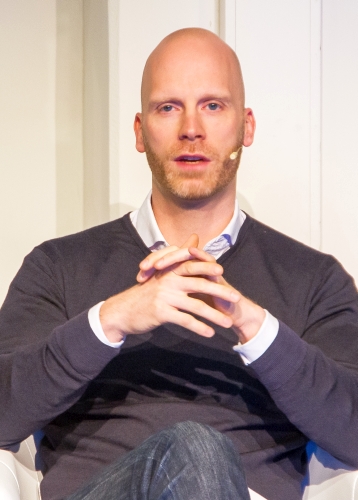 |
|
| Dr. Jens Pippig - focusing on accelarators and selected start-ups. |
Key success factors for the hotel industry, Massatti said, included free WiFi, good WiFi signal and WiFi in the vicinity of the hotel, for instance on the beach. One trend is hotel marketing is multi-sense marketing. Virtual reality will play a big role in future here. Marriott, for instance, has implemented this very skilfully in New York, where the company placed a type of shower cabin in front of wedding chapels. Inside the cabin, various situations were simulated, extraordinary locations for the honeymoon for instance.
"In Asia in particular, there are many developments in this field. This approach to push new things forward is much more popular there then here," he said. He sees the hotel industry as full of gaps and fails to identify a great desire to innovate. Meanwhile, Massatti and his team prefer to work on location with those companies that are open to innovation. "We work a lot with cardboard, because that's a sustainable and flexible material." Working with cardboard allows you to easily put together your dream room. At the same time, it helps in understanding that companies can change.
Learning with and from start-ups
ProSiebenSat1Media Accelerator takes the broader view in its own special way: twice a year, it offers an innovation award to young companies. The start-ups so identified receive access to mentors and capital, and are also given TV advertising space worth EUR 500,000. The companies come from sectors with end-customer focus in eCommerce, finance, health and travel. In the hotel sector, TripRebel was supported, a booking system which optimises the booking right up to the point of check-in, Pippig reports.
"It's important to pay attention to what's happening out there on the market. And if we participate in start-ups, it can pay off at some point. One's own company learns from this and presents itself as innovative," Pippig explained. For each sector, the rule is: "In certain key processes, you should go with volume. The special experience can be placed on top of this. With our start-ups, I see its crucial that the basics are right."
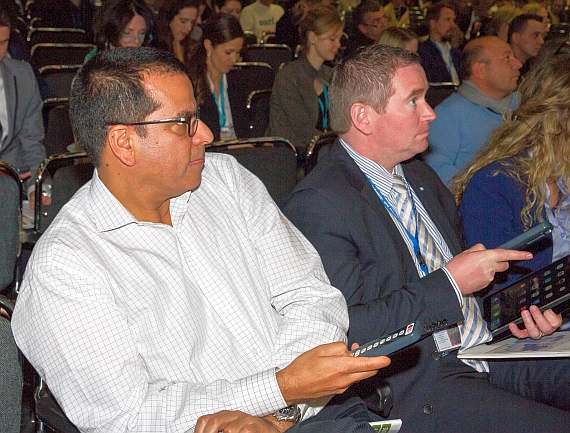 |
|
| The audience voting: Technology will not dominate the hotel industry. |
And Hoffmann agreed with this here: "We haven't reinvented the wheel in marketing. We pay attention to product design and marketing works very well for this reason." Of course, 25hours can't manage entirely without technology. "We are spending a lot of money at the moment for technological innovations, for instance, for online check-in and check-out," Hoffmann admitted. "Perhaps we're not the most innovative industry that you can imagine," the CEO continued, "but it's also about redefining the service here and not only about the technology."
In the auditorium, Hoffmann's arguments were obviously received well. In response to the final question "Will technology be the key factor in a hotel's success?", 74 percent of those attending the discussion answered with "no", 19 percent with "yes" and seven percent with "perhaps". / Susanne Stauss
Watch the video of this ITB Hospitality Day session 2016 here in full length!
Continuative Links:
- April 8, 2016 More of everything and faster-ITB Hospitality Day 2016: Plateno CFO Eric Wu about the hotel giant from China
- April 1, 2016 Owning the customer: ITB Hospitality Day makes Google and Booking.com clarify their strategies
- March 18, 2016 Robots? Terrible but useful - ITB Hospitality Day: Humanoids still a joke but they will become job killers (short version)
To print this article you have to be registered and logged in for newsletter, visitor or subscription.





